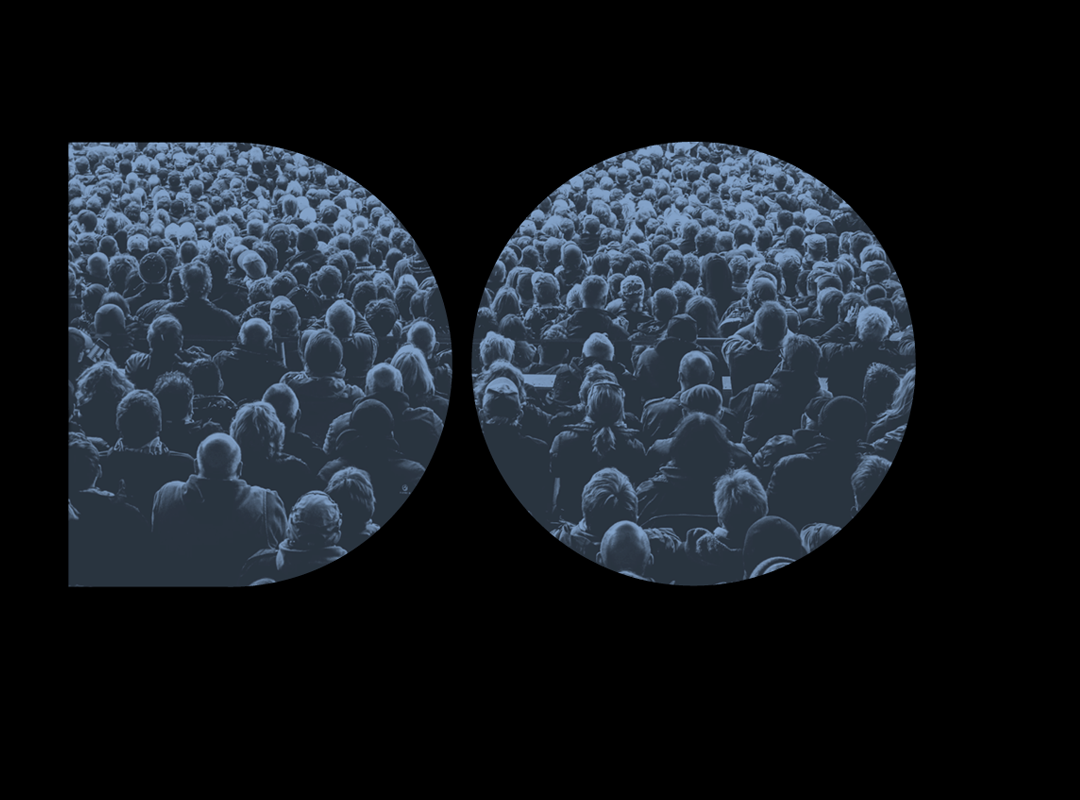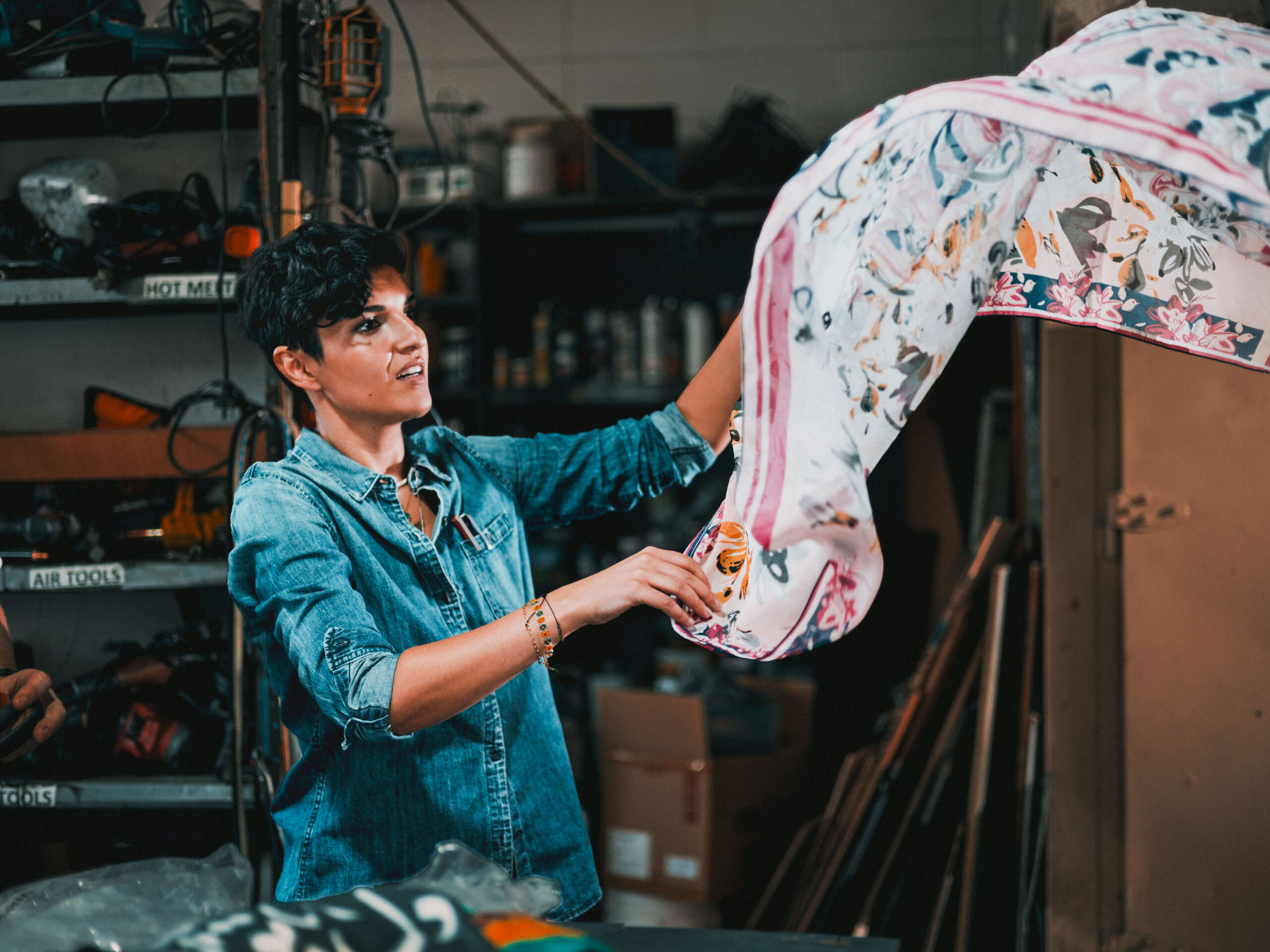
May 21, 2013
Cycle Commerce As An Ecosystem

Illustration: Sameer Kulavoor Ghoda Bicycle Project
At a workshop in Delhi a few weeks back, during the UnBox Festival, Arjun Mehta and myself posed the following question to a group of 20 professionals from diverse backgrounds: What new products, services or ingredients are needed to help a cycle commerce ecosystem flourish in India’s cities, towns and villages?
Our starting point was Arjun’s own experience developing Shuruat, a cycle commerce platform for physically challenged people in and around Bombay. Arjun’s project aims to help them become mobile business vendors primarily in semi-urban and rural India. Shuruat provides its clients with tricycles; designs attachments that enable them to be used for different kinds of business; provides potential vendors with training; and helps them connect with local suppliers.

Arjun and his team have learned a lot — the hard way. “We set out to apply product design, technology and communication design to social challenges” Arjun told us — “but the range of challenges we’ve encountered has been far broader than that. A lot of different activities, that we had not anticipated, have to be tackled and coordinated”. Prototyping and manufacturing the tricycles was just the start, Arjun explained. He also spent a lot of time finding field partners; learning how to work with them; managing projects; raising money; and communicating to the world.
Projects such as Shuruat, we concluded at UnBox, are not unlike plants: In order to thrive, they need to be planted in a receptive ecosystem. This realisation left us with a new question: in what ways can an ecosystem for cycle commerce be cultivated — and how?
It turns out that India’s eight million velowallahs (bicycle traders) and rickshaw pullers are an important part of a vast but neglected phenomenon — India’s informal economy. Of India’s 500 million strong workforce, 92 per cent subsist in an informal sector where their vast numbers include vegetable vendors, hawkers, wastepickers, construction workers, domestic help, and farmers.
These informal workers are living examples of the entrepreneurship, social innovation, and grassroots culture, that can make a city smart and sustainable — but their situation is precarious. The world over, in the name of modernization, most municipal authorities believe it important to eliminate street vendors. Cycle vendors, especially, are regarded as an impediment to traffic rather than a social and ecological asset. In India and Africa alike, local police often harass cycle traders and velowallahs at the behest of business people and landlords who believe that their presence impacts negatively on property values and rents.
A lack of finance for velowallahs is another obstacle. Fewer than five percent of India’s eight million rickshaw pullers own their vehicle, for example; the majority hire them on a daily basis and pay a third or more of their daily income for the privilege. One of our workshop participants, Stanley Grace, a designer from Tamil Nadu, has explored the velowallah ecosystem in a project called Vandi (vandi means ‘cart’ in Tamil). Stanley told us just how precarious life can be. A rickshaw trader may pay 50 rupees ($1) a day to rent a cart and borrow perhaps 700 ($14) to purchase vegetables from a market; he will probably pay interest at 10% a day. From a take-home pay of 300 rupees the hard working puller often has to support a family of five or six souls. Banks in India will lend people money to buy pretty any kind of vehicle except a cycle rickshaw; they cite, as an excuse, the fact that most of the pullers are migrants. Lacking access to loans, most rickshaw pullers end up paying the cost of the rickshaw many times over.
Stanley Grice was keen that we should not perceive Velowallahs only to be passive victims of a cruel system. He recalled a meeting with Coimbatore government officials to discuss better ways to integrate food carts in the city. Why not group food carts in a special area, he proposed — as is happening in US cities? If water and waste disposal were provided, it would improve health and hygiene. Some vendors were not keen on the idea; such an arrangement would mean paying pay a tax to the city corporation; they preferred to remain unorganized and independent.

A vendor goes door to door delivering plastic and metal vessels.
Solidarity platforms
India’s informal workers and velowallahs are not without support. Rickshaw Bank, for example, was set up in 2004 when a veterinary surgeon from Assam, Dr Pradip Kumar Sarmah, learned about the dire economic situation of his rickshaw driver for the day. Kumar put together an asset-based micro-leasing package in which pullers pay daily installments on a “rent-to-own” plan which lasts between 12-18 months. The fee also covers a newly-designed rickshaw, insurance, a license, and a uniform.
With their focus on the welfare of the rickshaw pullers, Rickshaw Bank, like Arjun’s Shuruat project, do valuable and important work — but their scale and reach remain small. Another organization, Nidan, organizes informal workers into legal entities such as associations, cooperatives, self-help groups — and on a national scale. Nidan’s most prominent initiative, the National Association of Street Vendors of India (NASVI), has 615 member organizations representing 350,000 individuals across 23 states. NASVI leverages this membership in its bargaining with the state and the private sector. The result: more street vendors than before have a secure space to sell, support in cases of harassment or eviction, opportunities for representation at municipal and state levels, and access to finance.
The battle between formal and informal is not new. Mahatma Gandhi, after all, started the the Khadi movement in India a century ago to honour and support India’s poorest people. But today, the conflict between formal and informal more intense than ever as, around the world, attempts are made to banish street markets and cycle vendors from the streets. It’s a battle between two systems: a formal one which is large-scale, money-based, and wedded to hard-wired solutions; the other, a informal one, which is local, networked, place — based and trust-based.
The needs of informal economies may be contested, but they not complicated. At a recent conference in Barcelona the designer Niti Bhan explained that in order to thrive, informal workers need security, and the ability to plan ahead; they need liquidity to finance operations beyond the very short-term; and — as underpinning for the above — they need to be members of trusted networks.
Security, liquidity and transparency do exist in formal economy, Bhan pointed out — but not for poor workers. Laws and legal systems, contracts, and insurance, have become become expensive, and have been hijacked to serve mainly corporate agendas.

The cartwallah invests his own money or borrows it for interest from private lenders. The interest rate varies from INR 1000 — 5000.
New models and platforms
The good news is that a wave of social innovation — its impact amplifed by new technologies — is emerging within the solidarity economy — in the North as well as the South. A new web portal called Means of Exchange, for example, recently launched by Ken Banks, is collecting examples of how emerging, everyday technologies can be used to democratize opportunities for economic self-sufficiency, rebuild local community, and promote a return to local resource use. A diversity of different tools, practices and platforms is healthy, Banks believes — but not if too many wheels get reinvented.
Another source of inspiration is Robert Neuwirth’s Stealth of Nations blog, based on a book by the same name. Neuwirth, who has spent most of the past five years hanging out with myriad informal workers on the streets of cities like Lagos, is a tireless chronicler of ‘System D’ — the parallel economy that today accounts for half the jobs on the planet — and, to repeat, 90 percent of those in India.
Diverse, fragmented economies are more resilient than hyper-connected global ones, Neuwirth reminds us. Economic power in the developing world contains millions of the small-scale businesses, family farms, local traditions, and extended social and regional networks. that resilience experts are advocating as novelties here in the North. They may or may not be part of the legally recognized economic structure, he says, but “what happens among all the unregistered street markets and roadside kiosks of the world is not simply haphazard. It’s a product of intelligence, resilience, self-organization, and group solidarity. It follows a number of well-worn though unwritten rules. It is, in that sense, a system”.
Within this system — or rather, multiplicity of systems — small traders do not wait on NGOs or formal banks to gain access to credit. They do their own banking in their own way. In Lagos, for example, they have their own credit system. They have their own banks.
Observed
View all
Observed
By John Thackara
Related Posts

Business
Courtney L. McCluney, PhD|Essays
Rest as reparations: reimagining how we invest in Black women entrepreneurs

Design Impact
Seher Anand|Essays
Food branding without borders: chai, culture, and the politics of packaging

Graphic Design
Sarah Gephart|Essays
A new alphabet for a shared lived experience

Arts + Culture
Nila Rezaei|Essays
“Dear mother, I made us a seat”: a Mother’s Day tribute to the women of Iran
Recent Posts
Minefields and maternity leave: why I fight a system that shuts out women and caregivers Candace Parker & Michael C. Bush on Purpose, Leadership and Meeting the MomentCourtney L. McCluney, PhD|Essays
Rest as reparations: reimagining how we invest in Black women entrepreneurs Food branding without borders: chai, culture, and the politics of packagingRelated Posts

Business
Courtney L. McCluney, PhD|Essays
Rest as reparations: reimagining how we invest in Black women entrepreneurs

Design Impact
Seher Anand|Essays
Food branding without borders: chai, culture, and the politics of packaging

Graphic Design
Sarah Gephart|Essays
A new alphabet for a shared lived experience

Arts + Culture
Nila Rezaei|Essays
